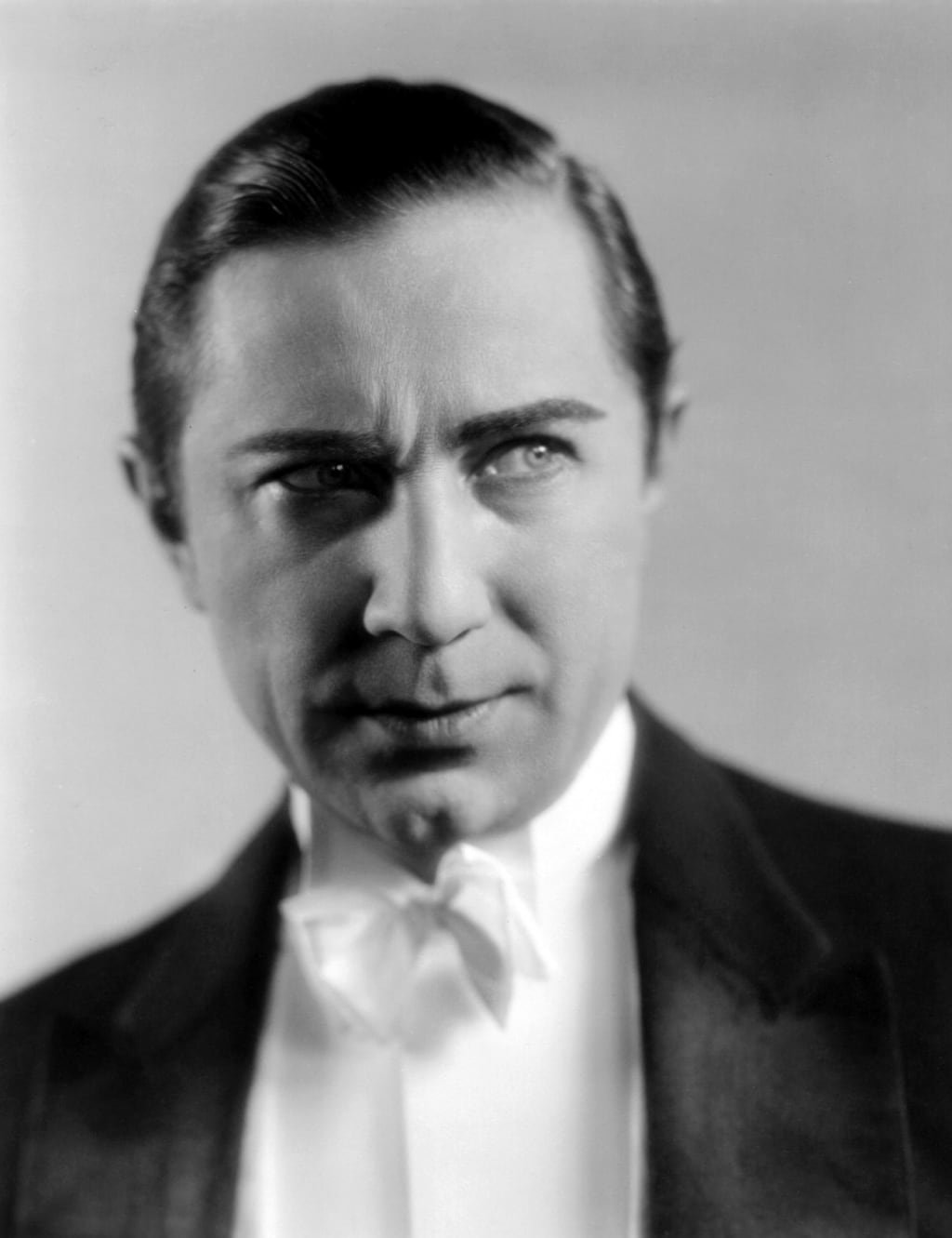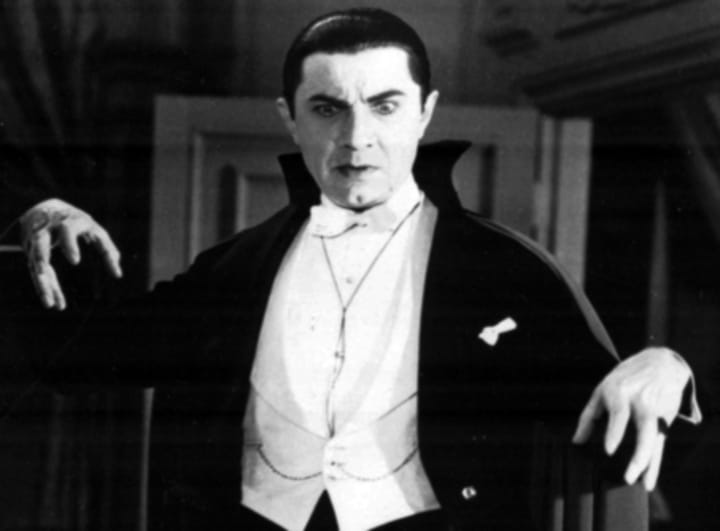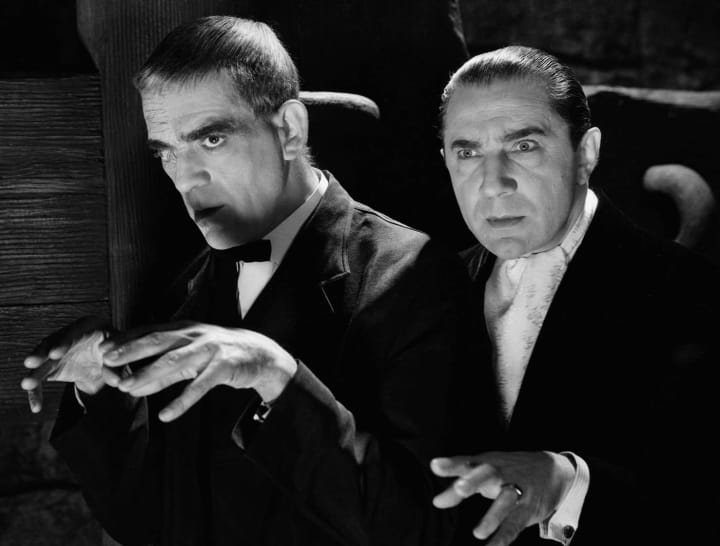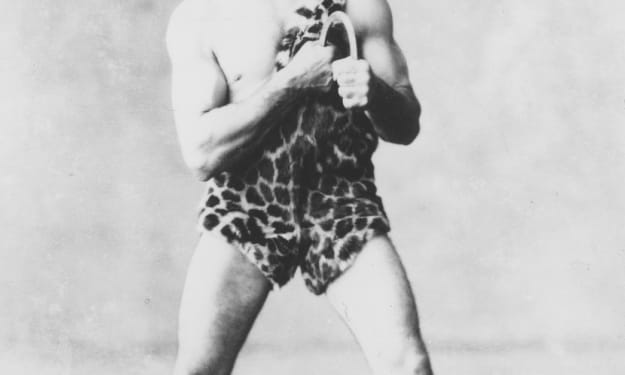Anti-Fascist Role Models: Bela Lugosi
Immortal Vampire, Union Leader, Enemy of Fascists

When you think of Bela Lugosi, chances are you imagine the original Count Dracula. Though he appeared in over a hundred films, and countless stage performances (pun very much intended), the immortal Transylvanian monster defined Lugosi's legacy as much as Lugosi defined the Count in our pop culture.
While he was a talented performer, there was more to Lugosi's legacy. He was a veteran of the Great War, he was an early union organizer who laid foundations that are still in place for screen actors today, and he was bitterly and actively anti-fascist at a time where such stances were not as popular as one might think they should be.
This is the second installment of the series, following on from Joe "The Mighty Atom" Greenstein, a Jewish strongman who once beat 20 American Nazis bloody on a New York City street corner. For more unique content, take a moment to check out my full Vocal archive!
Lugosi's Early Life

Lugosi was born in Lugos, Kingdom of Hungary, Austria-Hungary (what is now Lugoj, Romania) in the year 1882. A town that, incidentally, was only about 50 miles from the castle of Vlad Dracula. Born to a banker, and raised in a relatively conservative household, Bela's expressed desire to become an actor wasn't a welcome sentiment in his home. Which is why, according to Workers, he ran away from home at age 12 to become a star.
And as we all know, become a star he did. Lugosi worked odd jobs, as actors are wont to do, and he made his stage debut in 1902 at the age of 20. Incidentally Lugosi was the stage name he adopted a year after he first walked the boards; his birth name was Béla Ferenc Dezső Blaskó. Called "The Lawrence Olivier of Hungary" by critics at the time (a huge compliment, for those who somehow don't know who Lawrence Olivier is), Lugosi was on-track to become the star he'd always wanted to be.
During the first World War he enlisted in the army, and managed to achieve the rank of Captain before getting injured. He returned to the stage after the war, but even though the guns had gone silent for a time, there was still an enemy to be fought. One that he was already raising the alarm against.
Communists, Unions, and Fighting The Bourgeoisie

Ask any actor (or just anyone who works in the arts) how they're treated, and you're going to be in for some horror stories of bloodsucking monsters that will make Dracula seem soft and cuddly. Tales of safety protocols being ignored (when they're even present), insane demands being put onto actors' bodies and schedules, refusal to pay anything resembling a living wage (when payment is rendered at all), and people being forced to work while injured, starving, or both are quite common... all for the entertainment of the patrons.
In a place where the upper class was growing ever wealthier, it's no surprise that actors like Lugosi supported the communist party when it came to Hungary. Though a communist government was only in power for a short time, in that time it managed to introduce legal protections for minorities, an 8-hour workday, and a higher national wage. Lugosi, refusing to lose momentum, also helped found the Free Organization of Theatrical Employees, which later expanded out into the National Trade Union of Actors. This was to be the first union in the world for screen actors, and in many ways it set the standard for what came later.
This government system only lasted for 2 years, when the government was overthrown by a fascist regime. Serious backlash against those who had demanded rights and freedom came as soon as power had been retaken, and communists and Jewish people were being targeted. Lugosi fled to Vienna, and from there made his way to the United States where his most famous role (and one might argue more influential work) awaited him.
The Fight Continues

Lugosi came to America via New Orleans, and made his way to New York while learning English. In 1927 he played Dracula in a stage production, which paved the way for his iconic film version of the vampire Count we all know today.
It was during the Great Depression that Lugosi put his organizing hat back on, and helped found the Screen Actor's Guild. A founding member, according to People's World he was also joined by horror heavy hitter Boris Karloff (who would actually hand out leaflets still in full monster makeup). Because while we might think of movie stars as extravagantly wealthy people who get VIP treatment as the prized talent, that certainly wasn't the case in the early days of the silver screen. Even big names were treated little better than fresh faces, forced by studios to meet ridiculous standards while being paid relatively little for all the sweat they put in (and all the money they made for the studio).
That's something the Screen Actor's Guild was instrumental in protecting later generations from.
While standing up to the monied interests who ran Hollywood was nothing new for Lugosi (other than the fact that his adversaries now spoke English as their main language), the continued rise of fascism in Europe was something else he sounded the alarm against. Lugosi used the platform he'd established for himself to denounce the puppet government of Hungary that was controlled by the Nazis, and called for the scourge of Nazism to be wiped out across the world. He demanded the U.S. take in refugees, particularly Hungarian Jewish refugees who were fleeing death and destruction in their homes.
And while he may no longer have been the young man who fought in the Great War, his fervor was something that you could positively feel.
Though he was just a man, and had the same flaws any human does, we can learn an important lesson from Bela Lugosi when it comes to fighting against fascism. Just because you're using your words, your political platform, or your ability to organize instead of breaking noses and bloodying knuckles, that doesn't mean you're not in the fight. Because changing minds changes culture, and when fascist ideas are no longer acceptable, those who hold them can find no support among the populous. With no soil to stick their roots into, the weed will die.
No stake driving required... though it never hurts to be sure.
About the Creator
Neal Litherland
Neal Litherland is an author, freelance blogger, and RPG designer. A regular on the Chicago convention circuit, he works in a variety of genres.
Blog: Improved Initiative and The Literary Mercenary
Reader insights
Outstanding
Excellent work. Looking forward to reading more!
Top insights
Compelling and original writing
Creative use of language & vocab
Easy to read and follow
Well-structured & engaging content
Expert insights and opinions
Arguments were carefully researched and presented
Eye opening
Niche topic & fresh perspectives
Masterful proofreading
Zero grammar & spelling mistakes
On-point and relevant
Writing reflected the title & theme






Comments
There are no comments for this story
Be the first to respond and start the conversation.